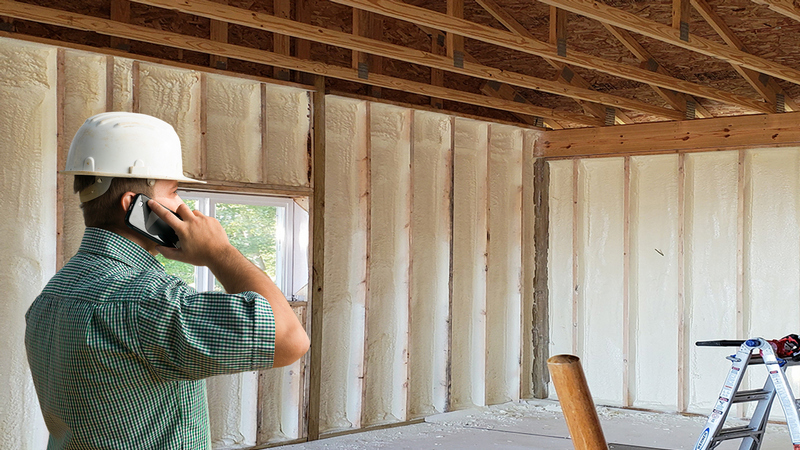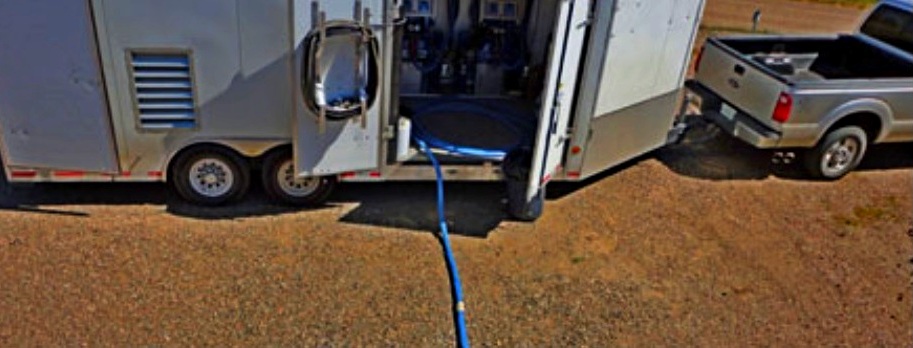
Spray Foam Insulation
Spray foam insulation, specifically polyurethane spray foam, is a versatile and highly effective solution that combines insulation and sealing properties to enhance energy efficiency and comfort in buildings.
With over 40 years of proven use, this insulation outperforms traditional materials like fiberglass or cellulose by offering a higher R-value and the ability to seal cracks and crevices, creating an airtight barrier. ProFoam Insulators provides expert application of this technology across Saskatchewan, ensuring homes and industrial spaces benefit from reduced energy costs, improved air quality, and long-lasting performance.
Benefits
- Energy Efficiency: Reduces heating and cooling costs by up to 40% and air conditioning/heating tonnage by up to 35% without sacrificing efficiency or comfort.
- Draft-Free Environment: Seals cracks, joints, and gaps to prevent uncontrolled air movement through walls, reducing dust accumulation for cleaner indoor spaces.
- Noise Reduction: Open-cell structure and semi-rigid polyurethane mass absorb and reduce sound transmission, creating quieter homes.
- Improved Air Quality: Airtight sealing enhances indoor air quality by keeping out external pollutants and allergens.
- Stability and Durability: Rigid, does not settle, sag, or decompose over time, providing a one-time application that lasts the building’s lifetime.
- High R-Value: Offers excellent insulating properties with an R-value increase of R7 per inch of thickness, surpassing traditional insulation materials.
- Eco-Friendly Option: Uses soya-based Eco-Foam, a non-petroleum product that is environmentally friendly and safe for families.
- Air and Vapor Barrier: Acts as an insulation, air barrier, and in some cases, a vapor barrier, maintaining true R-value by preventing air leakage.
OFF-Gassing:
Does polyurethane spray foam “off-gas”?
All manufactured materials will off-gas to some extent. Some building products off-gas in large quantities. Think about how a house smells after it has been freshly painted, kitchen cabinets have just been given a coat of stain, or after vinyl flooring has just been installed. Fortunately, spray foam insulation off-gasses quickly, usually within 24 hours. After that, it’s completely safe.
Uses in Residential Sector:
- Walls (interior and exterior)
- Attics
- Foundations (exterior and interior)
- Crawl spaces (exterior and interior)
- Ceilings (cathedral and flat)
- Header spaces (basements and between floors)
- Doors and windows (sealing between frames and wall openings)
- Pipes and ducts (including underground)
- Recreational equipment (swimming pools, spas, hot tubs)
Uses in Industrial Sector:
- Insulating/coating tanks and storage vessels
- Truck bodies (refrigeration and freezer units)
- Rail car insulation
- Pipelines and wellheads
- Pipes and ducts
What happens if the contractor does not do a proper job?
Quality Assurance: Contractors must meet CAN/ULC S705.2 installation standards; a third-party Quality Assurance Program resolves deficiencies if needed.
All licensed spray foam contractors must meet the installation requirements of the CAN/ULC S705.2 Installation Standard and all the installation requirements of the manufacturer. Additionally, all manufacturers and suppliers of the spray foam products we use provide comprehensive Quality Assurance measure. The Quality Assurance Program acts as a conciliator to resolve all issues. The Quality Assurance Program investigates any complaints and conducts inspections. If there are any deficiencies from the Standard, the contractor must correct the deficiencies and if he is unwilling or unable to do so, the 3rd party warranty provided under the Quality Assurance Program will correct the problem up to the limits set by the Program.
Building Codes and Regulations:
- Recognition: Recognized in the National Building Code as thermal insulation, air barrier material, and air barrier system, with standards referenced directly in the code.
- Standards Compliance: Meets CAN/ULC S705.1 Material Specification and exceeds all building code requirements for air barrier systems.
- Installation Requirements: Applied exclusively by certified contractors under CAN/ULC S705.2 standards, ensuring safety and code compliance.
- Certified Installers: Only trained, certified, and licensed installers from the Canadian Urethane Foam Contractors Association Inc., working for licensed contractors, can apply medium-density spray foam.
- Performance Testing: Tested by independent laboratories for occupant safety, with off-gassing limited to 1/100 of government allowable limits within 24 hours.
- Fire Safety: Contains fire retardants, achieving a flame spread of less than 500 per CAN/ULC S102 and National Building Code requirements.
- Temperature Range: Application and curing between -5°C to +35°C; service range from -60°C to +80°C.
The CUFCA (Canadian Urethane Foam Contractors Association) is the trade association of spray foam insulation contractors in Canada. You can see their Spray Foam Fact Sheet for Consumers PDF by clicking here.
Related Posts:
✅ Understanding the insulation R-value
✅ Spray Foam Insulation for Shops, Quonsets, and Pole Barns
✅ Spray Foam Insulation and Mice

Who We Are:
ProFoam Insulators Ltd are a roofing, insulating, and coating contractor in Saskatchewan, Canada.
We specialise in SPF polyurethane roofing and polyurethane spray foam insulation. We offer our services in any setting; residential, commercial, and industrial, throughout Saskatchewan.
ProFoam Insulators has years of experience providing high-quality spray foam insulation in Swift Current and throughout Saskatchewan. Our certified team ensures professional installation that meets or exceeds all building codes, giving you an energy-efficient, comfortable, and durable insulation solution.
All of our employees are experienced, and have received training and certification by a third party ISO accredited training institute.
Contact us today for a free quote and expert advice on your next insulation project!
In Swift Current:
Telephone: 306-773-3606
Cellular: 306-537-9529
The information on this page and this website is for informational purposes only, and is not a substitute for Federal, Provincial or Municipal regulations, bylaws, codes, or licences. If any information on this website is inconsistent with any applicable code/regulation, the appropriate code/regulation from the applicable regulatory governing body takes precedent.

